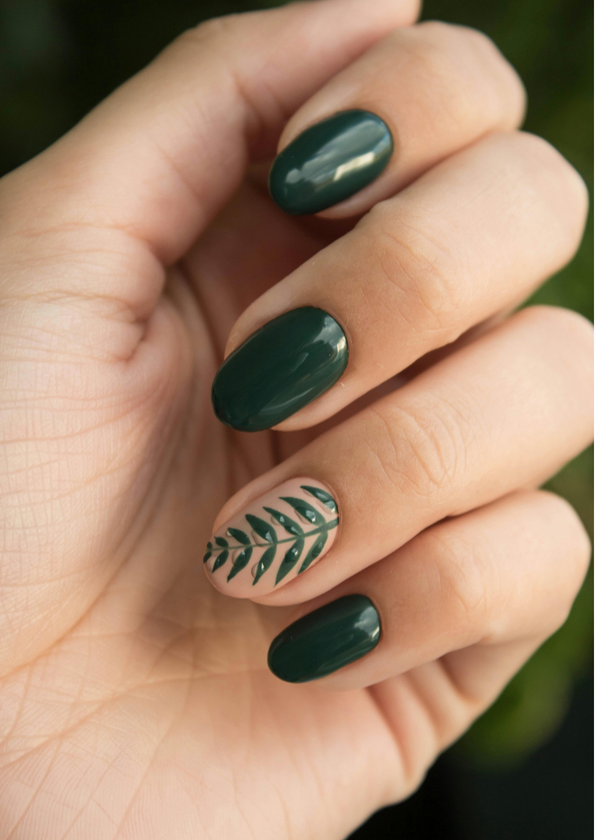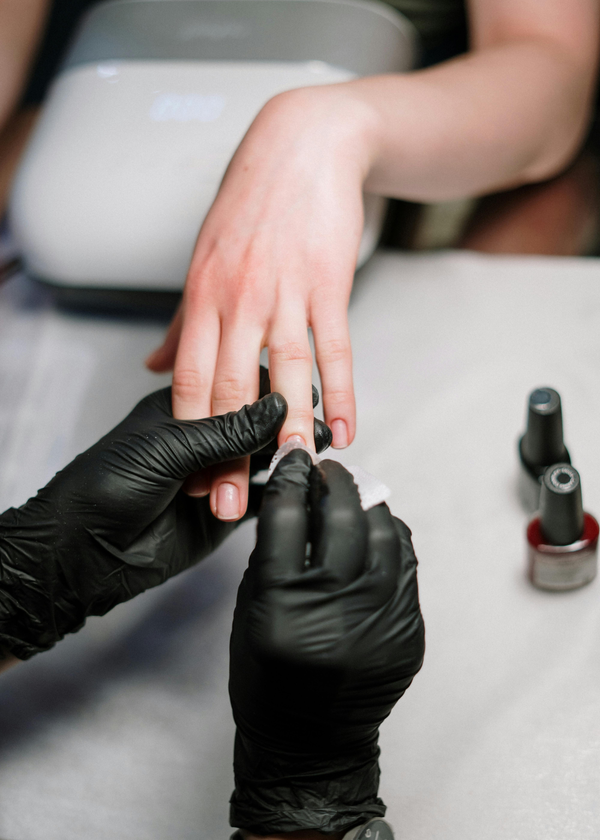Sea moss, a type of red algae, has been gaining popularity as a superfood, touted for its numerous health benefits. From supporting thyroid function to enhancing skin health, sea moss is packed with essential nutrients that can play a pivotal role in maintaining overall health. But what exactly does this marine marvel do to your body? Let’s dive into the science and stories behind sea moss and its impact on human health.
A Treasure Trove of Nutrients
Sea moss is celebrated for its dense nutritional profile. It contains 92 of the 102 essential minerals needed by the human body. These include iodine, which is crucial for thyroid health, calcium for strong bones, and zinc for immune support. Consuming sea moss, whether in the form of raw sea moss, sea moss gummies, or supplements, can help fill nutritional gaps in your diet.
The Thyroid Connection
The thyroid gland relies on iodine to produce hormones that regulate metabolism, energy, and mood. Sea moss, being a natural source of iodine, supports thyroid health. However, it's important to monitor iodine intake as both too much and too little can lead to thyroid problems. Sea moss supplements and gummies typically provide a controlled dose suitable for daily consumption.
Boosting Immunity the Natural Way
Sea moss strengthens the immune system due to its high vitamin and mineral content. It is particularly rich in iron and antioxidants, which protect cells from damage and support immune health. Regular intake of sea moss can be a simple yet effective way to boost your body’s defense system.
Gut Health Guardian
The high dietary fiber content in sea moss aids in maintaining a healthy gut. It helps regulate bowel movements and has prebiotic effects, fostering a favorable environment for beneficial gut bacteria. This not only improves digestive health but also enhances nutrient absorption, contributing to better overall health.
Heart Health and Sea Moss
Sea moss's potential to support heart health lies in its ability to help maintain healthy cholesterol levels and improve circulation. The natural compounds found in sea moss can aid in reducing the buildup of bad cholesterol, thereby reducing the risk of cardiovascular disease.
Skin Health: More Than Just Surface Deep
Rich in vitamins and minerals that are crucial for maintaining healthy skin, sea moss helps in hydrating and nourishing skin cells. Regular use of sea moss products can lead to a noticeable improvement in skin texture and elasticity, making it a popular ingredient in skincare routines.
Exploring Supplement Forms: Gummies vs. Capsules
When diving into the world of sea moss as a dietary supplement, you'll find it packaged in various forms, each with its unique appeal and use cases. Sea moss gummies and sea moss capsules are two popular choices, but they cater to different preferences and lifestyles. Gummies, often made with fruit juice and evaporated cane juice for sweetness, offer a palatable option for those who might find swallowing capsules challenging. They are particularly popular among children and adults who prefer a tastier alternative to pills.
On the flip side, sea moss capsules appeal to those who are more focused on convenience and may want to avoid the added sugars found in gummies. Capsules can be swallowed quickly and typically contain a more concentrated form of sea moss, making them a favorite for those who are serious about integrating sea moss into their health regimen without extra calories. Both forms ensure that you receive the potential benefits of sea moss, such as support for thyroid health and improved immunity, but the choice between them often boils down to personal preference and health goals.
Exploring the Nutritional Spectrum of Sea Moss Gummies
Irish sea moss gummies are not just a trend; they're a concentrated source of marine goodness. Packed with the benefits of red seaweeds, these gummies are celebrated for their convenience and nutrient density. They typically include sea moss extract, which is a rich source of iodine, essential for producing thyroid hormones. However, it's crucial to balance consumption, as too much iodine can lead to thyroid imbalances. These gummies often incorporate other beneficial ingredients like burdock root, enhancing their nutritional profile and offering a synergistic boost to your health.
While sea moss gummies typically promise a hassle-free way to incorporate seaweed components into your diet, it's important to choose wisely. Most sea moss gummies are marketed as organic sea moss gummies, ensuring they are free from unwanted additives and are sourced sustainably. They support thyroid health effectively, thanks to their iodine content, but relying solely on these gummies for nutritional needs isn't recommended. Diversifying your intake with a variety of nutritional supplements can prevent the risks associated with excess iodine, such as stomach pain or more severe thyroid dysfunction.
The Versatility of Sea Moss in Culinary Creations
Sea moss, particularly the type known as Irish moss, is not just confined to the shelves of health enthusiasts as a supplement form. Chefs and home cooks alike are discovering its potential in the kitchen. This red seaweed can be transformed into a gel and used as a natural thickener in soups, smoothies, and even desserts. Its subtle taste ensures it doesn't overpower the primary flavors of the dish, making it a versatile ingredient in culinary experiments.
Moreover, incorporating sea moss specifically into daily meals goes beyond its health benefits; it adds a creative twist to traditional recipes. Imagine a vegan panna cotta or a dairy-free chocolate mousse, both enriched with the nutritional power of sea moss. This approach not only diversifies your diet but also integrates the benefits of sea moss in an enjoyable and sustainable way. By exploring its culinary uses, one can avoid sea moss gummies and other processed forms, ensuring a more natural intake of its nutrients.
The Impact of Sea Moss on Mental Clarity and Focus
Sea moss, often hailed as a superfood, is not just about physical wellness but also extends its benefits to mental health. Rich in potassium chloride, it helps dissolve catarrhs, or inflammation and phlegm in the mucous membranes, which can prevent congestion and improve mental clarity. As you dive deeper into your daily tasks, incorporating sea moss might just be the brain food you need to clear the fog and enhance focus.
Moreover, the high concentration of essential minerals found in sea moss, such as iodine, helps regulate thyroid function, which is crucial for maintaining a healthy metabolic rate and brain function. Regular consumption of sea moss can be a game-changer for those who rely solely on caffeine and other stimulants to stay alert. By nurturing your brain with the right nutrients, sea moss ensures you stay sharp and productive, naturally.
Sea Moss and Hydration: Thirst Quencher with a Twist
When discussing hydration, sea moss might not be the first thing that springs to mind, yet its moisture-retaining qualities can play a pivotal role. Sea moss gel, in particular, is an excellent hydrator due to its mucilaginous consistency, making it a perfect ingredient for smoothies and shakes that keep you hydrated and nourished. This natural source of hydration is especially beneficial for those who rely solely on water and might miss out on vital electrolytes.
In addition to its hydrating properties, sea moss is packed with omega-3 fatty acids, potassium, and other electrolytes that help maintain fluid balance in the body. This not only helps improve your daily water intake but also ensures that your cells receive all the essential nutrients they need to function optimally. Whether you're an athlete looking to boost your hydration game or simply seeking a nutritious way to stay refreshed, sea moss offers a unique blend of benefits that go beyond simple hydration.
Sea Moss: A Cultural and Historical Perspective
Sea moss has been harvested for centuries, particularly in coastal communities where sea moss specifically, and red seaweed in general, are abundant. In places like Ireland and Jamaica, Irish moss has been a staple, not just for its health properties but also for its economic importance. Historically, it provided a critical source of nutrition during times of scarcity and has been a traditional remedy for ailments ranging from sore throats to digestive issues.
The cultural significance of sea moss extends beyond its use as a mere supplement form. In Jamaica, for instance, sea moss drinks are a popular refreshment, believed to provide energy and enhance well-being. These traditional uses underscore the importance of not relying solely on modern supplement forms like capsules and gummies. By understanding and appreciating the historical context of sea moss, we can better appreciate its role in contemporary health and nutrition discussions, ensuring its sustainable use and conservation for future generations.
The Double-Edged Sword of Sea Moss Supplement Forms
Taking sea moss gummies can be a delightful way to boost your intake of polyunsaturated fats and other potential health benefits. These gummies, derived from brown seaweed, offer a substantial amount of marine drugs that are pivotal in maintaining various bodily functions. They are particularly beneficial for those with iodine deficiency, as they help maintain adequate levels of thyroid hormones. However, it's essential to monitor the dosage to avoid the pitfalls of too much iodine, which can disrupt thyroid function and lead to health issues.
However, individuals taking blood thinning medications should tread carefully. The interaction between the high iodine content in sea moss gummies and certain medications can be tricky. It's crucial to consult with a healthcare provider before integrating sea moss gummies into your regimen, especially if you are already on prescribed medications. This precaution helps mitigate any adverse effects while allowing you to enjoy the benefits of sea moss, such as improved energy levels and enhanced metabolic functions, safely and effectively.
The Rise of Homemade Sea Moss Products
Amidst the growing popularity of sea moss, many health enthusiasts are turning to homemade preparations to ensure they get the most natural and potent form of this marine superfood. Homemade sea moss gummies and premade sea moss gel are two common DIY projects that health-conscious individuals embark on. Making your own sea moss gummies allows for complete control over the ingredients, ensuring that only organic and natural sweeteners like fruit juice are used. This DIY approach appeals to those looking to avoid preservatives and artificial additives commonly found in commercial products.
Moreover, preparing premade sea moss gel at home can be a fulfilling endeavor. This gel can be used as a base for smoothies, topical skin treatments, or even as a nutrient-rich culinary ingredient. The process involves simple steps of soaking, blending, and setting the sea moss, which can be a delightful kitchen experiment. By choosing to go homemade, individuals not only forge a deeper connection with their food but also tailor their intake of sea moss to suit their specific health needs and culinary preferences.
Weight Management and Sea Moss
Incorporating sea moss into a balanced diet can aid in weight loss and healthy weight maintenance. Its iodine content helps in optimizing energy expenditure by the body, while its fiber content can lead to a feeling of fullness, reducing overall calorie intake.
Potential Risks: A Word of Caution
While sea moss provides numerous health benefits, it’s crucial to consume it in moderation. High iodine levels can lead to thyroid dysfunction, and there is also a risk of heavy metals and other contaminants, especially if sourced from polluted waters. Always opt for certified organic and tested products.
Sea Moss for Athletes: Aid Muscle Recovery
Athletes might find sea moss particularly beneficial due to its ability to aid muscle recovery after intense workouts. The rich mineral content, especially potassium, helps in replenishing lost nutrients and reducing muscle soreness.
Sea Moss and Women’s Health
For women, especially those who are pregnant or breastfeeding, sea moss offers essential nutrients that support fetal and maternal health. However, it is crucial to consult healthcare providers to ensure safe consumption levels and avoid any health risks.
Sea Moss in Traditional and Modern Diets
Historically, sea moss has been used in local cuisines where it naturally grows, particularly in the Caribbean and Ireland. Today, its versatility makes it a popular addition to smoothies, desserts, and even main dishes, adapting well to modern dietary preferences.
The Environmental Angle
Sustainably harvested sea moss not only ensures minimal environmental impact but also guarantees better quality and efficacy. Wildcrafted sea moss, harvested from its natural habitat, typically contains higher nutritional value compared to farmed varieties.
FAQs
Q1: How often should I consume sea moss?
A1: For best results, consuming sea moss daily in recommended amounts, typically around 1-2 tablespoons of gel or 1-2 gummies, is advised. However, it's best to consult with a healthcare provider to tailor the intake to your specific health needs.
Q2: Can sea moss replace my regular supplements?
A2 While sea moss is nutrient-rich, it should not replace other dietary supplements prescribed by your healthcare provider. Instead, use it as a complementary addition to your diet.
Q3: Are there any specific people who should avoid sea moss?
A: Individuals with overactive thyroid, those taking blood-thinning medications, or those allergic to iodine should avoid sea moss. Pregnant and breastfeeding women should consult their doctor before taking sea moss products.
Summary
Sea moss is a versatile and nutrient-rich marine plant that offers a wide range of health benefits. From supporting thyroid function and boosting the immune system to promoting gut and skin health, sea moss can be a valuable addition to a balanced diet. However, it’s important to consume it responsibly to avoid potential health risks associated with excessive iodine intake and contaminants.








